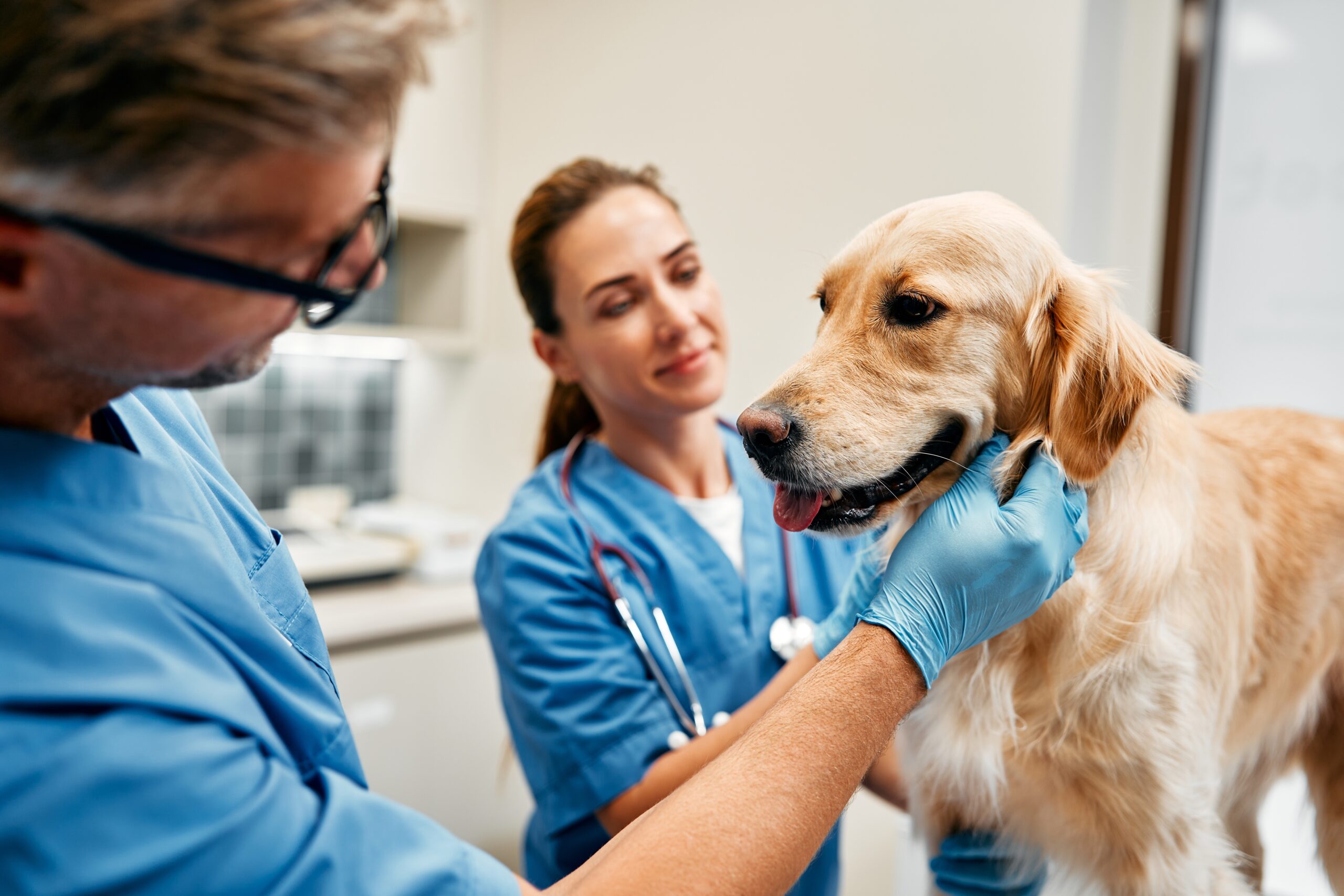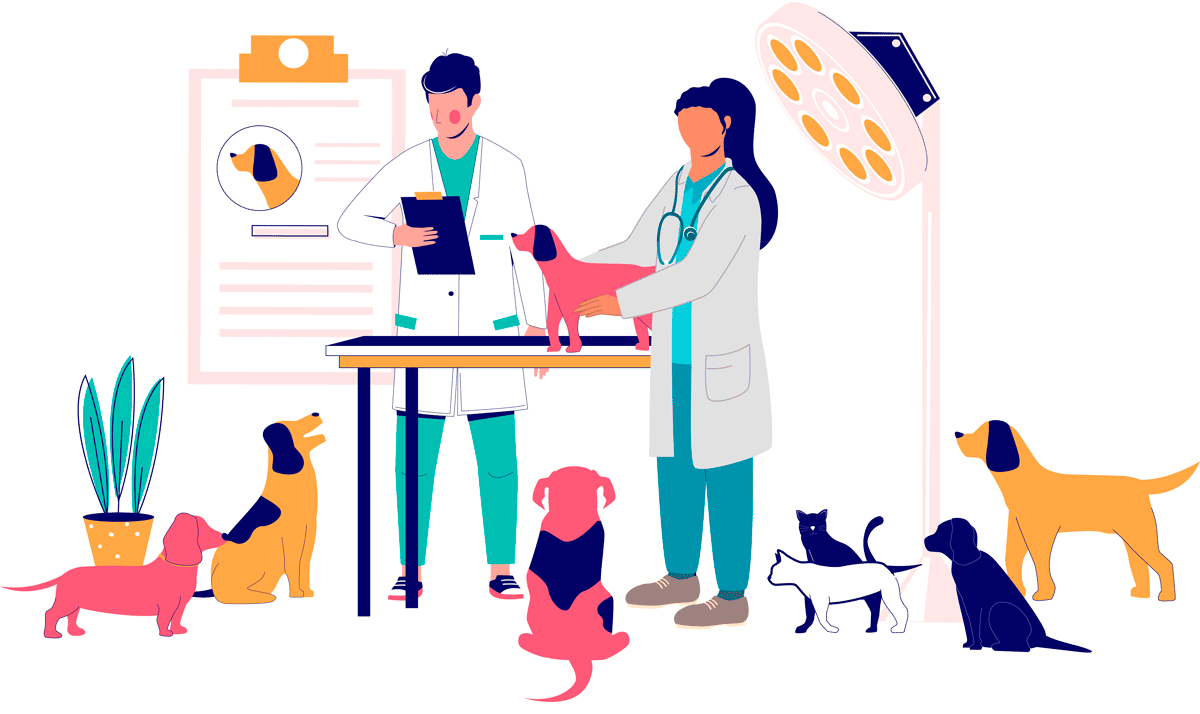Signs your pet needs a Veterinary Cancer Specialist evaluation
Wiki Article
Comprehensive Guide to the Providers Provided by a Vet Oncologist
Vet oncology encompasses a large range of solutions aimed at treating and identifying cancer in family pets. Board Certified Veterinary Oncologist. Oncologists use advanced analysis techniques and use various therapy alternatives tailored per animal's requirements. They also focus on supportive care and give important sources for animal proprietors. Understanding these solutions is essential for making notified choices. What specific elements of vet oncology can notably affect a pet dog's treatment trip?Recognizing Veterinary Oncology
Vet oncology is a customized field concentrated on detecting and treating cancer cells in animals. This discipline includes a wide variety of methods, from medical therapies such as radiation treatment and immunotherapy to medical interventions targeted at getting rid of lumps. Veterinary oncologists are trained to acknowledge the special indications of cancer cells in numerous species, enabling them to tailor treatment plans to individual clients.Along with typical therapies, vet oncology emphasizes supportive care, which plays an important function in enhancing the high quality of life for damaged pets. This includes pain management, dietary assistance, and palliative care options. Cooperation with pet dog proprietors is crucial, as they are integral to decision-making regarding their pets' therapy courses. As study breakthroughs, vet oncology proceeds to develop, providing new hope and improved end results for pet dogs detected with cancer. In general, this field is essential for dealing with the complexities of cancer cells in buddy animals.
Advanced Diagnostic Techniques
Advanced diagnostic strategies play a crucial function in veterinary oncology, providing critical understandings into the presence and level of cancer in animals. Imaging methods such as ultrasound, CT scans, and MRI are frequently utilized to visualize lumps and evaluate their characteristics. In addition, biopsy procedures are necessary for getting tissue examples, enabling for definitive medical diagnosis and tailored therapy plans.Imaging Modalities Utilized
Imaging modalities play a crucial function in the medical diagnosis and administration of cancer in pets. Veterinary oncologists make use of various advanced imaging methods to assess lump presence, transition, and dimension. Radiography, or X-rays, offers a preliminary sight of bone and chest problems, while ultrasound provides real-time imaging of soft tissues, enabling detailed examination of internal organs. Computed tomography (CT) boosts visualization of complex physiological frameworks and enables 3D repairs, aiding in exact lump localization. Magnetic resonance imaging (MRI) is vital for soft cells differentiation, especially in mind lumps. In addition, nuclear medicine methods such as positron discharge tomography (PET DOG) help identify metabolic activity within growths. Jointly, these methods enhance diagnostic accuracy, assisting reliable therapy strategies for oncological clients.Biopsy Procedures Described
Adhering to the first assessment through imaging modalities, acquiring a conclusive medical diagnosis usually requires tissue sampling with biopsy procedures. Veterinary oncologists use different biopsy strategies based upon the lump's location and characteristics. Fine needle goal (FNA) is a minimally invasive technique that draws out cells for cytological evaluation, suitable for shallow masses. Core needle biopsies offer larger tissue samples and serve for much deeper growths, permitting histopathological analysis. Surgical biopsies include excising a portion or the entire tumor, assisting in complete examination. These treatments not only confirm the presence of cancer cells yet likewise aid identify its type and quality, leading treatment decisions. Each biopsy approach is picked very carefully to balance diagnostic precision with person safety and security and comfort.Treatment Alternatives for Cancer in Pets
When a pet dog is diagnosed with cancer cells, a variety of therapy alternatives appear to help improve and handle the condition lifestyle. Vet oncologists usually advise a multidisciplinary method customized to the individual family pet's needs, which may consist of surgery, radiation therapy, immunotherapy, or different therapies.Surgical treatment is usually employed to eliminate lumps and affected tissues, possibly leading to total remission in many cases. Radiation therapy aims to damage and target cancer cells, reducing growth dimension and alleviating symptoms - Veterinary Oncologist. Immunotherapy utilizes the family pet's body immune system to eliminate cancer better, while different treatments could include acupuncture or herbal supplements to support overall health and wellness
Each treatment choice brings its very own advantages and dangers, and vet oncologists function carefully with pet dog proprietors to make an extensive plan that lines up with the animal's certain diagnosis and the owner's desires. The supreme goal is to improve the animal's comfort and lifestyle throughout their cancer journey.
Chemotherapy for Animals
Radiation treatment is an usual therapy choice for family pets identified with cancer cells and is commonly used combined with other therapies outlined by veterinary oncologists. This therapy includes the administration of particular drugs made to ruin and target cancer cells, thus decreasing tumor dimension and stopping the spread of the illness. Veterinary oncologists customize chemotherapy protocols based upon the sort of cancer, the pet's total health, and the desired therapy result.Adverse effects can take place, as these medications may additionally affect healthy and balanced cells. Typical reactions consist of nausea, throwing up, and go to this website momentary changes in cravings - Veterinary Oncologist. Vet oncologists are equipped to take care of these adverse effects properly, making sure the pet's convenience throughout the treatment procedure. Normal tracking with blood examinations and follow-up visits is necessary to assess the family pet's response to radiation treatment and make necessary modifications. Inevitably, chemotherapy can supply significant benefits, boosting the quality of life for family pets encountering cancer diagnoses

Radiation Therapy in Vet Medicine
Radiation therapy serves as an efficient treatment choice for animals diagnosed with local growths, supplying a targeted strategy to cancer cells management. This technique utilizes high-energy radiation to harm the DNA of cancer cells, preventing their capacity to multiply. It is particularly valuable for tumors that are not open to surgical removal or for instances where surgical procedure may not be practical due to the lump's place.Veterinary oncologists tailor radiation procedures based on lump place, kind, and More hints dimension, in addition to the pet dog's overall health. Treatment can be delivered by means of outside light beam radiation or brachytherapy, each with unique advantages. Usually, several sessions are required to make best use of efficiency while reducing adverse effects.
Although pet dogs may experience short-lived responses such as skin irritability, the total aim is to reduce tumors and minimize signs and symptoms, inevitably enhancing the pet's prognosis and high quality of life. Accordingly, radiation therapy plays an important duty in detailed cancer cells treatment.
Palliative Treatment and Lifestyle
Palliative care in vet oncology focuses on enhancing the lifestyle for pets encountering terminal diseases, making sure convenience and dignity in their final days. This customized approach focuses on discomfort management, sign control, and emotional support. Vet oncologists assess each animal's individual requirements, customizing interventions to ease discomfort and improve total wellness.Techniques may include providing drugs for discomfort alleviation, taking care of nausea, and attending to other stressful symptoms. In addition, dietary assistance is often given to keep stamina and enhance hunger. The psychological aspect of palliative treatment is equally vital; producing a calm setting helps in reducing anxiety for both family pet and owner.
Inevitably, the goal of palliative treatment is to enable pet dogs to enjoy their staying time with as much pleasure and self-respect as feasible. By concentrating on comfort and lifestyle, vet oncologists play a crucial role in guaranteeing that family pets and their families navigate this challenging trip with concern and understanding.
Assistance for Pet Owners Throughout Treatment

Psychological Advice for Owners
Charting the emotional landscape throughout a pet dog's cancer therapy can be a frustrating experience for proprietors. The uncertainty bordering diagnosis and diagnosis can bring about click this site feelings of anxiousness, unhappiness, and vulnerability. Vet oncologists identify the significance of psychological assistance and often supply guidance to help owners navigate this difficult trip. Communication is important; going over treatment options and possible outcomes can ease some concerns. In addition, using peace of mind that psychological feedbacks stand fosters a supportive setting. Several oncology centers may likewise suggest support system or therapy solutions tailored for family pet proprietors, helping with shared experiences. Encouraging owners to focus on self-care throughout this moment is vital, as their psychological health straight influences their pet's comfort and general therapy experience.
Resources and Educational Materials
Guiding through the complexities of a pet dog's cancer cells therapy can be daunting for owners, making accessibility to academic products and reputable sources vital. Veterinary oncologists often offer an array of handouts, sales brochures, and online materials that discuss therapy choices, potential side effects, and treatment techniques. These sources help debunk the procedure and equip animal owners to make educated decisions. In addition, several oncology centers use accessibility to sustain online forums and groups where proprietors can get in touch with others dealing with comparable obstacles, fostering a feeling of community. Educational webinars and workshops performed by vet experts even more boost understanding, making certain that proprietors are fully equipped to browse their family pet's journey with cancer treatment with confidence and understanding.Frequently Asked Concerns
Just How Can I Prepare My Pet Dog for a Veterinary Oncology See?
Preparing a pet dog for a vet oncology browse through includes gathering medical documents, noting signs, and making certain the family pet fits. A calm temperament and acquainted items can help alleviate anxiety throughout the consultation.What Are the Indicators My Pet May Have Cancer?
Indications that a pet dog might have cancer cells consist of unusual weight management, persistent vomiting or diarrhea, unusual swellings or swellings, lethargy, changes in cravings, trouble breathing, and changes in actions. Prompt vet focus is crucial.Exactly How Can I Assistance My Family Pet Emotionally Throughout Therapy?
Supporting a pet dog mentally during therapy involves offering convenience, keeping routines, providing mild love, and making sure a tranquil atmosphere. Taking part in peaceful play and normal friendship aids ease anxiety and cultivates a feeling of safety and security.Are There Different Therapies for Animals With Cancer?
Different treatments for pet dogs with cancer cells consist of acupuncture, herbal treatments, and dietary assistance. These approaches may enhance traditional therapies, promoting overall well-being. Consulting with a vet is crucial for risk-free and effective assimilation of alternative treatments.What Costs Should I Anticipate for Veterinary Oncology Services?
The awaited prices for vet oncology services can vary substantially, often influenced by diagnostics, therapies, and ongoing care. Animal proprietors need to plan for costs varying from appointments to specialized therapies, reflecting the complexity of cancer management.Cooperation with animal proprietors is important, as they are integral to decision-making concerning their animals' therapy courses. Each therapy choice lugs its very own advantages and dangers, and veterinary oncologists work carefully with family pet owners to create an extensive strategy that aligns with the family pet's certain medical diagnosis and the owner's desires. Animals may experience momentary reactions such as skin irritability, the total goal is to reduce lumps and alleviate signs and symptoms, eventually boosting the animal's prognosis and high quality of life. Assistance for animal proprietors during therapy is crucial in steering via the psychological difficulties connected with a pet's cancer cells medical diagnosis. Preparing an animal for a veterinary oncology go to includes celebration clinical documents, noting symptoms, and ensuring the family pet is comfortable.
Report this wiki page